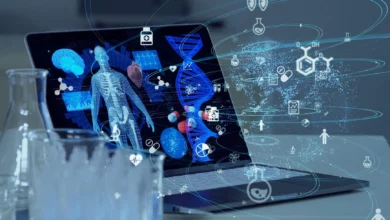Latest Articles
-
Nov- 2022 -24 NovemberAstronomy

Astrophysicists Solve 40-Year-Old Black Hole Jet Mystery With NASA’s IXPE
This illustration shows NASA’s IXPE spacecraft, at right, observing blazar Markarian 501, at left. A blazar is a black hole surrounded by a disk of gas and dust with a bright jet of high-energy particles pointed toward Earth. The inset illustration shows high-energy particles in the jet (blue). Credit: NASA/Pablo Garcia Blazars are some of the brightest objects in the cosmos. They are composed of a supermassive black hole feeding off material swirling around it in a disk, which can create two powerful jets perpendicular to the disk on each side. A blazar appears especially bright from the perspective of…
Read More » -
23 NovemberVolcanoes

Evading Volcanic Disaster: Monitoring “Frothy” Magma Gases for Eruption Signals
Monitoring the composition of magma gasses could help predict dangerous volcanic eruptions. Scientists want to take the knowledge from this discovery and build a 24/7 volcanic activity monitoring and early warning system. The composition of gases could forewarn of increased volcanic activity. Volcanic eruptions are dangerous, but unfortunately, they are also difficult to predict. Now, a team of scientists at the University of Tokyo has discovered that the ratio of atoms in specific gases released from volcanic fumaroles (gaps in the Earth’s surface) can provide an indicator of what is happening to the magma deep below. It works quite similarly…
Read More » -
22 NovemberDisease

New Technology: The ‘Almost Perfect’ Diagnosis of an Elusive Global Killer
he new technology correctly identified 99% of confirmed bacterial sepsis cases, 92% of confirmed viral sepsis cases, and predicted sepsis in 74% of clinically suspected but undiagnosed cases. Remarkable accuracy – a sepsis diagnosis tool combines genetic sequencing with analysis of patients’ immune responses. According to estimates, sepsis—a condition in which the immune system overreacts to an infection—causes 20% of fatalities worldwide and somewhere between 20 and 50% of hospital deaths in the United States each year. Despite its frequency and severity, the condition is challenging to identify and effectively treat. The disease can result in reduced blood flow to…
Read More » -
22 NovemberFood

Holistic Profiling System Identifies Food Better for Overall Health and Lower Risk for Mortality
In new research, scientists have shown that a holistic food profiling system, Food Compass, identifies better overall health and lower risk for mortality. Diets deemed better by the Food Compass profiling system are associated with lower risk of disease and death. Tufts University researchers find link between foods scored higher by new nutrient profiling system and better long-term health outcomes. That what we eat directly affects our health is an idea that is ancient. In fact, Hippocrates recognized this as far back as 400 B.C. However, identifying healthier foods in the supermarket aisle and on restaurant menus is increasingly difficult.…
Read More » -
19 NovemberClimate Change

Erosion of Rocky Coastlines May Dramatically Accelerate Due to Sea Level Rise
Bideford is a historic port town on the estuary of the River Torridge in north Devon, south-west England. Credit: Shadrick et al. Rocky coastlines could retreat more rapidly in the future due to accelerating sea level rise. This is especially concerning because rock coasts make up over half the world’s coastlines. This is the finding of new Imperial College London research that modeled likely future cliff retreat rates of two rock coasts in the UK. The forecasts are based on predictions of sea level rise for various greenhouse gas emissions and climate change scenarios. Rock coasts, traditionally thought of as…
Read More »










